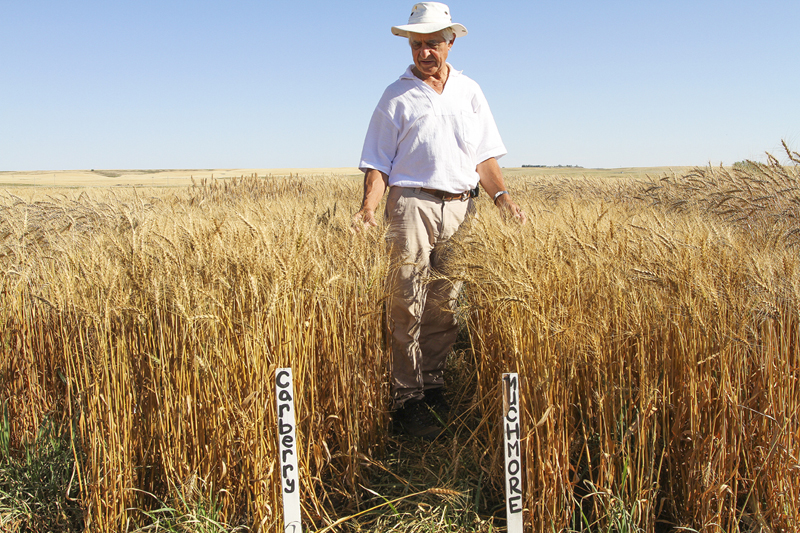Climate warming will likely cause a series of harmful impacts on wheat production. For this reason, breeding new heat-tolerant wheat varieties to adapt to and mitigate future warming stresses is an important task for breeders.
Previous studies often relied on crop models and explored the effectiveness of certain breeding adaptations by using various cultivar assumptions. Most studies have shown a quite optimistic view of the breeding approach amid future climate stresses.
Instead of using the modeling approach and cultivar assumptions, however, an international research team looked at 92 wheat-breeding nursery sites in the USA and Canada over the period from 1961 to 2018, investigating empirical evidence regarding real-world wheat yield responses to historical climate change by variety.
High temperature (i.e., heat) is a significant climatic stressor for both winter and spring wheat yields in North America. Nevertheless, the study revealed that the impact of heat on new and old varieties differs between winter and spring wheat. For example, new winter wheat varieties are more resilient than old ones when exposed to the same degree of heat. In contrast, new spring wheat varieties are more sensitive, indicating that climate resilience has not improved in spring wheat and may have even declined.
"Earlier modeling studies used some arbitrary variety assumptions," said lead author ZHANG Tianyi, an agrometeorologist at the Institute of Atmospheric Physics, Chinese Academy of Sciences. "Compared with our empirical evidence, modeling studies are likely to oversimplify reality and remain largely theoretical."
Co-author HE Yong, an agronomist at the Chinese Academy of Agricultural Sciences, further explained, "In wheat-breeding nurseries, new wheat varieties and one constant long-term check variety were always planted simultaneously in each growing season since 1961." He noted that this was like conducting a "strict experiment," with the different wheat varieties being exposed to the same climate stresses.
The research team then used the varieties' historical responses to project their response to anticipated future climate conditions. They found a declining rate of improvement for both winter and spring wheat yields with increased warming. However, improvement in spring wheat yields declined faster than winter wheat.
"Climate change may outpace current wheat breeding yield improvements. Using conventional breeding methods, adoption of new wheat varieties often takes more than 10 years, which restricts the availability of new varieties that are potentially adapted to future warmer conditions. This is clearly a big challenge to breeders in the next decades," said ZHANG.
Ron DePauw in wheat breeding nursery experiments. Photo Credit: Cam Barlow
According to another co-author, Ron DePauw, a global extraordinaire wheat breeder, "Identifying heat-tolerant genes will enable breeders to implement new strategies to adapt to climate change. New breeding knowledge and technologies may have great value for accelerating the development of heat-tolerant wheat varieties. The exact value of these new breeding innovations as they pertain to heat tolerance will be clarified within the next decade."
Media contact: Ms. LIN Zheng, jennylin@mail.iap.ac.cn
Reference: Zhang, T.*, He, Y.*, DePauw, R., Jin, Z., Garvin, D., Yue, X, Anderson, W., Li, T., Dong, X., Zhang, T., Yang, X.* 2022. Climate change may outpace current wheat breeding yield improvements in North America. Nature Communications. 13, 5591, https://doi.org/10.1038/s41467-022-33265-1.

